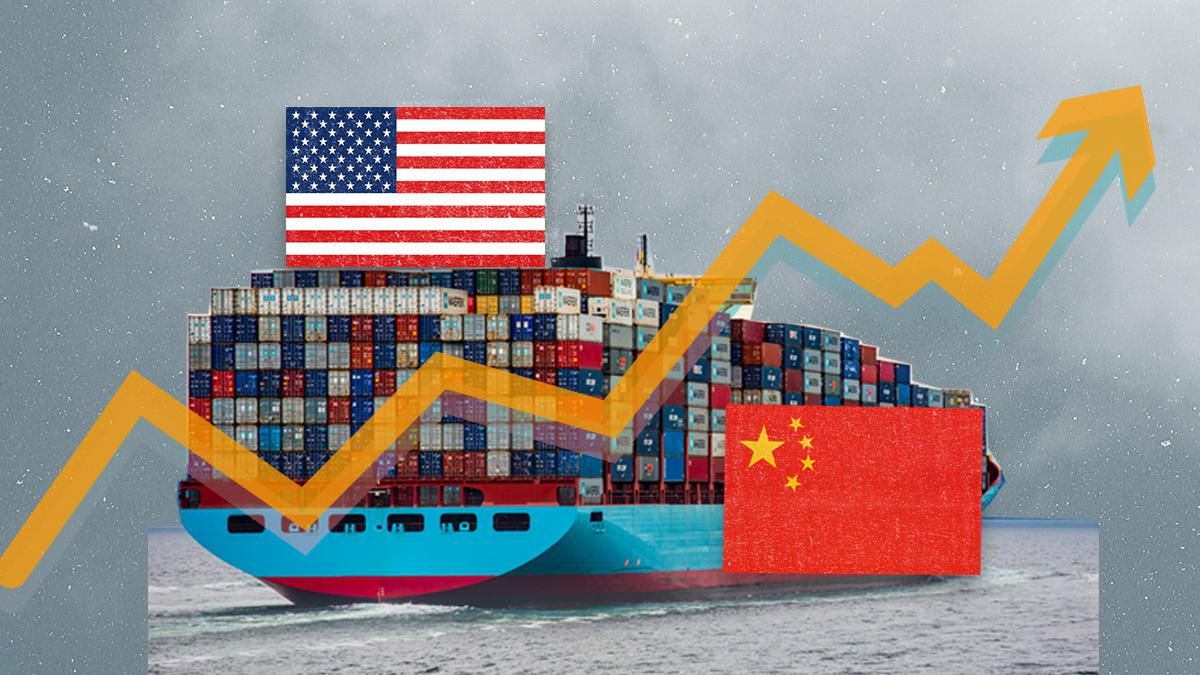July 18, 2022
Sometime this month, US President Joe Biden is expected to make up his mind about nixing (some of) the tariffs his predecessor, Donald Trump, slapped on three-quarters of Chinese imports. This was part of a wider trade war against Beijing, which hit back in kind.
Two years ago, then-candidate Biden said he'd remove Trump’s China tariffs if he won the White House but later decided to leave them in place — as he's done with many Trump-era China policies. Now, Biden is taking another look at keeping his campaign promise because, hello, inflation.
Most economists think it’s a no-brainer. "It was a poorly conceived policy right from the start. Those tariffs are essentially paid for by American consumers and businesses and haven't achieved anything in terms of US-China relations," says David Dollar, a senior fellow at the Brookings Institution. "It's time to recognize [the policy] hasn't worked."
Trump scored political points by playing up his anti-China bonafides and telling his base that the tariffs would bring back manufacturing jobs from China. Spoiler: they didn't, and the overall impact of his trade war on the US economy has been ... disastrous.
Indeed, the Tax Foundation estimates that since 2019 the tariffs have imposed nearly $80 billion in new taxes on Americans by making Chinese products more expensive, cut GDP growth by 0.22%, and killed 173,000 full-time jobs. Despite costly subsidies to make up for their losses, US farmers have taken a big hit.
What's more, Dollar says the tariffs have not only done little to damage China's economy; they’ve also encouraged the Chinese to shift their investment toward other countries and away from the US.
But it's a political gamble for Biden. Lifting the tariffs ahead of the November midterms would be a gift for Republicans, who’ll accuse the president of being soft on China, seemingly the only issue the GOP and Democrats can agree on these days.
Also, labor unions, very influential with the Dems, would rather keep the tariffs in place because removing them could lead to more US jobs being outsourced to China. Finally, Trade Representative Katherine Tai has warned that unilaterally lifting tariffs would take away critical US leverage in broader trade negotiations with China.
Still, Biden is desperate to fight inflation, and getting rid of the China tariffs could help. The question is how far the US president is willing to go.
A recent study by the Peterson Institute for International Economics shows that removing the China tariffs might ease inflation by one percentage point. That’s nothing to sneeze at, but it’ll take a bit of time for the effect to kick in.
The thing is, it seems Biden only wants to cut tariffs on some $10 billion worth of Chinese goods — barely 3% of the total. That won’t move the needle on inflation and is hardly worth the political pushback from Republicans and Big Labor.
"That's frankly nothing in the context of US trade or the US economy. [It] won't have any measurable effect," says Dollar. "It seems odd to be considering something that would really just be symbolic" and tantamount to "doing nothing at all."
And what does China have to say about all this? Not much, according to Eurasia Group's senior China analyst Michael Hirson.
"Among China’s foreign policy crowd, there is some degree of amusement that the tariffs have 'backfired' on the US," he explains. "For trade officials and Chinese firms, the possibility of lower tariffs is welcome news," although since the reduction will probably be only symbolic, this topic hasn’t been top of mind for Beijing.
If Biden were to lift all the tariffs, Hirson says China might respond by removing its own retaliatory tariffs, and perhaps offer to buy more American goods. But the Chinese won't do what Biden really wants from them on trade: to get rid of industrial subsidies for state-owned companies, which the US regards as unfair competition.
Would you ditch Trump's tariffs against China? Let us know here.This article comes to you from the Signal newsletter team of GZERO Media, a subsidiary of Eurasia Group that offers balanced, nonpartisan reporting, and analysis of foreign affairs. Subscribe to Signal today.
More For You
- YouTube
Gotta maximize sleigh-holder value. #PUPPETREGIME
Most Popular
- YouTube
On Ask Ian, Ian Bremmer breaks down the steady escalation of US pressure on Venezuela and why direct military action is now a real possibility.
US President Donald Trump arrives to announce reciprocal tariffs against US trading partners in the Rose Garden of the White House in Washington, DC, USA, on April 2, 2025.
POOL via CNP/INSTARimages.com
From civil conflicts to trade wars to the rise of new technologies, GZERO runs through the stories that have shaped this year in geopolitics.
Ukrainian serviceman walks near apartment buildings damaged by Russian military strike, amid Russia's attack on Ukraine, in the frontline town of Kostiantynivka in Donetsk region, Ukraine December 20, 2025.
Oleg Petrasiuk/Press Service of the 24th King Danylo Separate Mechanized Brigade of the Ukrainian Armed Forces/Handout via REUTERS
Ukrainian intelligence services assassinated a senior Russian general on the streets of Moscow on Monday, detonating a bomb strapped to his car.
© 2025 GZERO Media. All Rights Reserved | A Eurasia Group media company.
